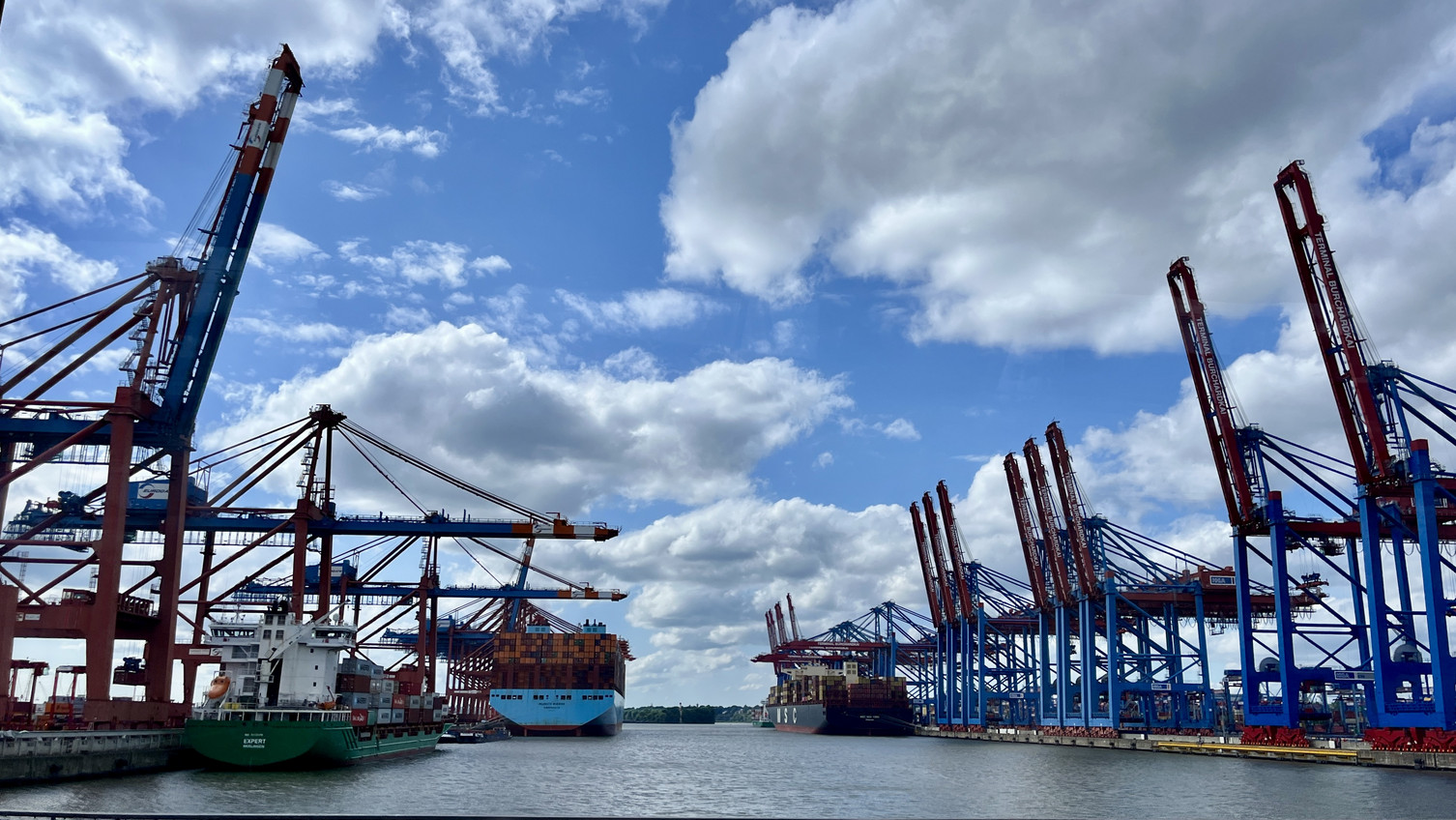Port of Hamburg: Digital twins and what they promise (Armin Beverungen)
2025-07-16 A voice command to your smartphone and shortly afterwards the desired goods arrive – a promise of convenience. Being able to see what is happening at home while at work – a promise of security. Being able to control processes at the Port of Hamburg remotely – a promise of efficiency. Prof. Dr. Armin Beverungen, Randi Heinrichs and their international project partners are investigating the extent to which smart technologies are linked to promises of prosperity in the “Smartness as Wealth” research project.
“Our basic assumption is that wealth today no longer means just assets. We have a more complex understanding of wealth: it also involves other dimensions of prosperity, such as convenience and sustainability,” explains Prof. Beverungen. His sub-project at the Centre for Digital Cultures (CDC) on the Port of Hamburg focuses especially on digital twins: “We ask why these technologies are used, what promises they are sold with and how they are then built. In Hamburg, the promise of efficiency prevails. Specifically, it is the promise of keeping the Port of Hamburg competitive in the global arena through smart technologies such as digital twins.” Digital twins are virtual representations of real objects or systems. They are created, for example, with the help of sensors that measure water levels or container movements and are used to optimise processes and maintain facilities.
The digital twins are not visible on site but work in the background. To gain a better understanding of the processes, the team uses ethnographic methods such as interviews, field visits and observations. This also includes harbour tours, as Armin Beverungen reports: “Last week (26 June 2025), we took part in the “Tour of the Giants” logistics tour, for example. This tour takes you to otherwise inaccessible terminals where you can observe everything. It is a useful tool for field research, as it allows you to experience the port in concrete terms rather than just looking at it on a map. A current issue at the terminals is automation: we were shown how old cranes are replaced by new ones. These are equipped with HD cameras and can be remotely controlled from an office.”
Beverungen emphasises that, next to the technological functionality, the historical dimension plays an important role in the project: “When we talk about wealth in Hamburg and look at the port, we should first think about its colonial heritage. Hamburg’s wealth depends heavily on what was already being done in global trade 150 years ago. There are logistics companies owned by families whose wealth dates back to colonial times and who still wield considerable influence in the port. As some of these stories are disappearing, we ask the question: Can there be other types of technological development that make history visible?”
The project plans to establish contact with stakeholders in the port, such as the Hamburg Port Authority, through transfer workshops. “We can present our research findings and suggest ways in which smart systems can be used differently – for example, by making sustainability issues visible and negotiable. We want to contribute to the debate on digital twins in technology research as well as in cultural studies. Above all, we want to contribute to a better understanding of the technology and, of how it is changing our relationship with the world.”
The “Smartness as Wealth” project is investigating the relationship between smart cities and wealth in five sub-projects. Each sub-project focuses on different smart systems in different locations: Energy Islands, Hamburg, Kalkota, Nairobi and Tokyo. The Volkswagen Foundation is funding the project from 2023 to 2027 as part of its “Perspectives on Wealth” funding line.

